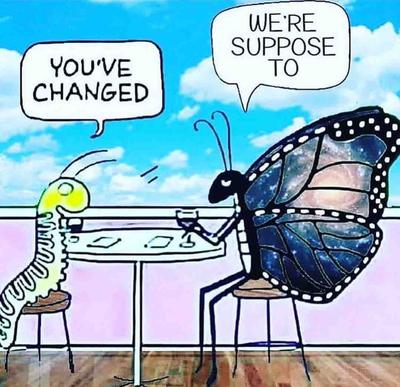Drop The Story
How To Deal With Your Demons and Transform Your Life
Most of the stuff we tell ourselves is, at best, a guess at the truth, and at worst, complete rubbish.
Learning how to drop the story and deal with that voice in your head can be a game changer.
When you can do this you will have a powerful tool for breaking free from your self-imposed limitations, improving performance in all areas of your life, and increasing your overall well-being.
I have a question for you:
Setting The Scene To Drop The Story
The demon in the dark
You are unemployed and experiencing a very hard time financially with all the pressures associated with that. You are exhausted and completely run down. You find it hard to control your thoughts.
You often wake up in the early hours of the morning with extremely negative thoughts.
There is a voice that kicks in and accuses you of failing and being hopeless and unemployable.
It feels like your own very personal demon whispering in your ear.
Because it is late and you are so exhausted you are in the grip of this voice and you can hardly sleep.
By morning you are exhausted. And the cycle repeats itself night after night. How can you drop the story?
[Please note: All references to demons in this article are metaphorical and not literal!]
Not good enough
I was working for a corporate client in the IT sector and I was asked to go and help one of their programme directors who was experiencing major delivery problems.
They were 6 months into an 18 month systems integration and hadn't hit a single milestone and $30mill was at stake!
When I got on site the programme director swore and said:
"Why have Head Office sent me another bl**dy consultant - as if that will make any difference!"
He
gave me a 3 week contract. I was absolutely terrified. Why? Because
here I was, helicoptered into a major failing IT programme, and I was IT
illiterate [this was a long time ago]. I was told that the problems were people related and I wasn't required to have any IT skills.
But on the first day as I gazed at the teams of 300+ software
developers, project experts, and technical experts - I froze.
This was a major career and commercial opportunity for me, and yet I felt overwhelmed. All of my dormant insecurities rose to the surface.
I suffered from imposter syndrome. I felt so totally and utterly useless and out of my depth until I remembered how to drop the story.
Performance anxiety
In the late 1990's the UK economy went
through a very bad recession. Hundreds of thousands of small businesses
were wiped out - including mine. My circumstances were bad I was
about $200,000 [£100,000] in debt. I had negative equity in my house. I
had no immediate prospects of improving my situation. My self esteem was
very poor.
During this time I was invited to become the [unpaid] voluntary Chairman of a new charity focused on mental health issues. We had funding of about $1.5 to $2mill and a staff of about 20 people.
One of my very early actions was to restructure the board and I needed to bring in some experienced professionals. As is often the case in these situations there was a culture clash between the professional and business people I brought in and the founding directors who were all social worker types.
As a board we had to make some tough policy and financial decisions. As Chair and CEO I had to make some tough calls which as a business man myself, I knew had to be made.
But, I felt so inadequate because of my circumstances. I knew I had the ability to make the decisions, and I knew they were right but I struggled with implementing them.
I cared too much what the rest of the board
thought of me but what I really needed was to drop the story.
Fear of rejection
Your understanding of relationships is that others will ultimately let you down and reject you. You keep everyone at arm’s length you never get too close to anyone so you never get hurt.
You are in sales job that requires you to face rejection several times a day as you are prospecting for new clients.
You are in the performing arts and have to stand on stage as a support act to an established successful performer and face the indifference of an audience waiting for the main act.
Your partner who you thought was the love of your life has left you for someone else.
You are trying to find and secure a new job, but keep getting turned down.
That half buried demon voice in your head keeps telling you that you're not good enough, to give up, and avoid all this rejection. So how to drop the story?
Facing up to an unavoidable difficult situation
About 25 years ago I got into some serious financial difficulties with my business which eventually led to me going bankrupt.
This was a tough time but I made it far harder on
myself than I needed to because the word "bankruptcy" had such negative
connotations and associations to me - deep powerful associations of
failure and shame.
Given the amount of files and paperwork
involved in filing for bankruptcy I had many physical and electronic
files and folders with the heading "Bankruptcy".
Every time I accessed one of these files I saw the dreaded, horrible, repulsive and loathsome word "bankruptcy".
Given that I had to access these files frequently I was constantly exposed to these extreme negative reactions and the demon voice in my head tortured me several times a day. I needed an effective way to drop the story.
The disconnect between your beliefs and your experience
A Christian friend of mine shared with me recently and he said:
"Even though I believe in God and believe that God hears and answers my prayers, I do not feel it.
I know in my head that God loves me, I believe it, but I have never felt that God loves me.
There's a voice in my head that always tells me that there's something wrong with me or something missing in me and that I have to try harder or change somehow to be worthy of experiencing that feeling. Somehow I need to drop that story."
________________________________
In this article I want to show you how and why you have these thoughts and to give you the tools to drop the story that is holding you back and making your life a misery.
How and Why You Have The Story

In simple terms, how and and why you create the negative and limiting stories that you tell yourself is the the function of two different parts of our brain.
How?
You can think of the first part as the software in your brain.
The human brain has evolved a wide range of modules which filter, interpret and explain and interpret what's going on in the world around us and their primary purpose is to help us survive.
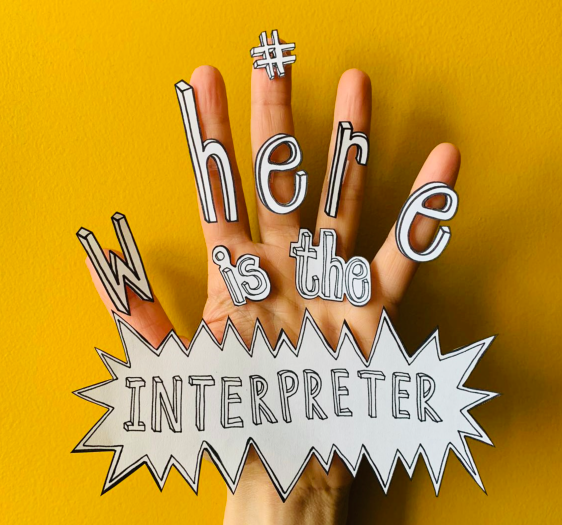
The "How" of the stories is largely the result of one of these modules that neuroscientist Dr. Michael Gazzaniga describes as "The Interpreter" as it seeks explanations and explains causality in what is happening in the events that we see and experience.
The Interpreter then provides us with a plausible end-to-end narrative of what has happened and why.
The interpreter is constantly spinning stories of what’s going on around us, as it applies causal explanations to the data it’s being fed; doing the best job it can with what it’s got.
Your interpreter software will always spin a plausible story, and it may make you feel safe and in control - that's its job, but it is so often deceived, deluded and just plain wrong and you may not realise this immediately or at all.
Why?
In addition to the software in your brain there is also a hardware component.
Unfortunately for us, as modern people, we are still walking around with the same hardware as our Paleolithic ancestors.
As Nassim Taleb succinctly put it:
“Our minds are not quite designed to understand how the world works, but, rather, to get out of trouble rapidly and have progeny."
98% of our thinking is unconscious, automatic and impulsive.
This thinking uses our mammalian brain which is all about emotions and is driven by our reptilian brain which is focused on survival.
Basically, we are hardwired to survive and reproduce and this is the function and purpose of our amygdala otherwise known as "The Lizard Brain" which is responsible for our instinctive drives. It has been flippantly described as "hungry, scared, angry and horny".
The lizard brain doesn't think reflectively it reacts automatically to what it sees in front of it.
So when you bring these two elements together, the software part of your brain [your interpreter] must deal with what it’s given by the hardware [your amygdala] and here's the rub, it can be tricked and manipulated, Gazzaniga calls this “hijacking”.
This means that the interpreter - the story telling mechanism in your brain - can and does get hijacked in many ways, for example it:
- Gets sabotaged by your lizard brain,
- Is also subject to a very wide range of cognitive biases, and
- Is limited by your conscious and unconscious beliefs.
The takeaway from all this is that:
- You can't help telling yourself stories it's how your brain is wired.
- Its not your fault that your stories get hijacked and become so negative, this is your lizard brain seeing and responding to what it sees as real or potential threats.
How To Drop The Story
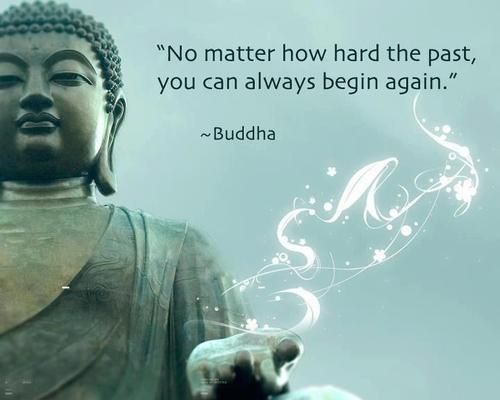
Before we get into the mechanics of how to drop the story I would like to make two unconnected points:
Firstly, an important disclaimer. As I have said on the home page to this site:
"I am NOT a therapist, priest, zen master, psychotherapist, mullah, rabbi, teacher or counselor and I am no way qualified to offer any form of professional support or guidance on how to change your life - I am just a simple businessman.
If you are undergoing any form of counseling, professional treatment or support (or if you feel you need to be) please stick with what your professional expert is telling you – or seek professional help (if you need to.)
Nothing I share with you will harm you, quite the contrary, but experience has shown that it is far more beneficial to follow one path or line of treatment and stick to it for the duration of the treatment – and as I have already told you, I am not a professional!"
Secondly, learning how to drop the story involves recognizing and separating yourself from the narrative you create. This doesn't mean ignoring reality or denying emotions, it means distinguishing between the facts of a situation and the subjective story you attach to those facts.
- It is important to understand and accept that you are not your thoughts.
- The best way to becoming aware of the stories you tell yourself, the words you use, and most importantly the emotions that you associate with those words is through mindfulness practice.
- This will increase your awareness of what is going on in your head as you train yourself to observe your thoughts without judgment and to free yourself from the contents of your mind.
The way forward
The way forward in learning how to drop the story, is not to deny or resist what your brain is doing, but to work with it. You do this by overwriting the software in your head and rewiring or short circuiting the hardware.
There are two aspects to this,
firstly there are the words in the stories we tell ourselves and then
are the underlying emotional associations. Let's start with the words,
the self talk.
[1] Self talk

To a surprising degree the human brain runs on auto-pilot and follows pre-programmed paths and patterns.
This is very true for all the stories we tell ourselves, the words we hear spoken in our heads.
Think of who you think you are - your ethnic identity, your cultural and religious beliefs, your class and social beliefs etc - none of these things were really a "free choice".
We are all very largely the product of the culture, religion, society, class and social group, and family groups in which you were raised.
The auto-pilot generating all these words is a ghost because so many of the thoughts, patterns,
associations and beliefs that drive your behaviour, operate outside of
your conscious awareness and are invisible to you.
It is even more unsettling to discover, as I did a few years ago, that despite getting involved in personal development and self improvement activities, that there are often still deeply buried beliefs expressed in unconscious self talk that still have a significant influence over your choices.
The very best clue that you have some unhelpful and unresourceful self-talk going on inside your head, but outside your conscious awareness, is to look closely at your resistance to things.
Find the ghost by checking what you resist.
Resources
This YouTube video explains how and why self talk works. I have had the link to this video for about 15 years as part of my own personal resources.
This is not a commercial and I am not promoting Dr Helmsetter's material and I have no affiliation with Dr Helmsetter or any of his companies.
I feature this because the way he explains it has always made sense to me. I have made my own tapes and changed my self talk. This is powerful.
Dr. Shad Helmstetter - "The Story of Self-Talk"
The following article by a neuroscientist explains that even five minutes of daily repetition can help
rewire your subconscious and lay the foundations for a new path.
How to rewire your subconscious to be your best self
Here is a series of articles from this site with free resources:
# It is the cumulative and compounding effect of the stories that you tell yourself that ultimately will shape your destiny. So choose wisely the stories that you tell yourself.
The Stories We Tell Ourselves Are A Matter Of Choice
# This summarizes the start position many of us find ourselves in.
How to See Your Thoughts Without Becoming the Story
# You can spend your life inside the stories of your mind without ever learning how to see your thoughts clearly and objectively.
Waiting For Change - Always Looking Forward Or Back, Anywhere But Now!
# For much of my life I didn't understand that change comes from within, I used to believe that change was something that happened to me in response to an external event, until I came to understand that it started within me.
# Take one specific aspect of your current reality that you are resistant to and that forms part of a story you tell yourself and ask "What am I protecting and why?"
# Here are some powerful and proven resources that I have used that will help you change your self talk and build a confident mind.
The Confident Mind - 4 Keys To Peak Performance
# If you want to take this to the next level and address the spiritual side of all this, then try this
Your Ebenezer Stone Of Help - Remembering Your True Source Of Power
[2] Emotional associations

So you have addressed the self talk and now have an inner narrative of positive self talk running in the back of
your mind that is affirming and running counter to all the ingrained negative stuff you have been telling yourself for so long.
But its not just the words its the emotions that you associate with those words that carries the real power.
The
choices of words that you use can have great power because of the underlying
emotional associations that they invoke together with the actions that result from
those associations.
By
changing the words you use in your self talk to an event, a
situation or an experience, you change the underlying emotional energy.
This change in emotional energetic state changes the results that you create.
Here is another important perspective:
Nothing has any intrinsic meaning other than that which you choose to give it. Change the words and the emotional associations and you are rewiring your brain. In rewiring your brain you change the results you experience.
Framing

Psychologists call this process framing.
The idea of framing comes from the Stoics who realized that we have considerable flexibility in how we respond to the situations we experience.
They also realized that the meaning or interpretation we give to an experience is a matter of choice.
For example they discovered that by thinking of setbacks as tests of
our character, we can alter our emotional response to them in a positive way.
Professor William Irvine on Framing - [Extract from Stoicism & Framing]
How To Frame Situations - Examples
The best way to illustrate framing in practice is to apply it to the examples I gave at the beginning of this article.
MANTRA
The demon in the dark
I used to be troubled by an accusing voice in my head when I woke in the early hours of the morning. I realised that to cope with my problems at night I needed something very simple that I could use in a semi –conscious state.
This practise came to me one day when I was meditating and it came in response to a request for help I made to my higher self.
What came to me was a simple phrase that had meaning for me at the time, was easy to remember and repeat over and over again.
Because the phrase had meaning and energetic power for me it meant that I could really feel the emotional and spiritual power in those words.
The phrase was:
"I choose the light – I walk in the light"
I used this mantra every night as I was falling asleep – and constantly if I woke up in the night. I used to wake up every morning with that mantra going round and around in my head.
The point of it was that it stopped my native thoughts, in fact it stopped all thinking because it gave my thinking mind something to do which shut it up. So I was able to drop the story, stay mindful, present and completely relaxed.
From the moment I started doing this I never had another bad night’s sleep. After a few weeks, as with other practices shared below and elsewhere on this site, it became automatic and a habit.
NLP TECHNIQUE
Not good enough
I was working for a corporate client in the IT sector and I was asked to go and help one of their programme directors who was experiencing major delivery problems.
I felt totally inadequate, utterly useless and out of my depth until I realized how to drop the story by using an NLP technique.
I have shared in detail how to do this and how it helped me earn over $300,000 on one deal:
How To Overcome Fear And Perform Powerfully - A Simple NLP Technique
COGNITIVE FRAMING
Performance anxiety
I was the volunteer [unpaid] Chairman and CEO of a charity that needed a restructuring of the board. Because I felt so inadequate because of my own business circumstances I cared too much what the rest of the board thought of me, but what I really needed was to drop the story.
At the time, I didn't fully resolve this issue and I just did the best I could at the time. However, several years later I had 2 important realisations which could have helped me at that time.
[1] If I knew how little other people were thinking about me, I wouldn't care at all what other people were thinking about me!
It came as a great relief when I eventually came to realise the truth that nobody spends much time thinking about what everyone else is doing. Why? Because we are all far too busy thinking about ourselves!
[2] I dropped the comparison game. Behind closed doors everyone carries a dark secret or a deep sadness - everyone suffers...no-one has the perfect life!
For years I used to beat myself up by making comparisons with other people who I knew and who seemed to have such a better life than me.
Then over the years, as I observed how things played out for these people over longer periods of time [maybe over 10 years or 20 years], from time to time circumstances changed and allowed me an insight into these "lucky" people's lives.
What did I find? Broken, unhappy marriages, fractured relationships with children, financial trauma and bankruptcy, alcohol and other related problems, despair and silent desperation.
All of this well concealed until eventually one day the masks slipped, the curtains twitched, and I got that "peep behind the scenes"...
DEEP ACCEPTANCE & COGNITIVE FRAMING
Fear of rejection
You
have experienced a lot of rejection in your life - and you continue to
experience rejection in your personal life and/or your working life.
In your vulnerable moments that
half buried demon voice in your head keeps telling you that you're not
good enough, to give up withdraw and avoid all this rejection.
In my experience of rejection there are 2 areas that need to be addressed to be able the drop the story:
[1] Deep acceptance of your pain.
Acknowledge with humility your suffering, your brokenness and your pain and allow something bigger than your suffering to open within you.
I
have written about this in detail about how to do this and how you will
benefit. In my experience this is very powerful in releasing your pain:
The Transforming Power Of Acceptance - I Accept What I Am Feeling Now
[2] Making a conscious decision about who to trust, how much to trust and understanding why it matters.
As we have already noted, there is no intrinsic meaning in any experience. The meaning we ascribe to it is a matter of choice.
Over
the course of your life there is a huge potential benefit and a huge
potential cost resting on your choice - which is discussed here:
Who Do You Trust - Trust Is A Choice And It Creates Your Reality
EMOTIONAL FRAMING
Facing up to an unavoidable difficult situation
About 30 years ago I got into some serious financial difficulties with my business which eventually led to me going bankrupt.
Given
the amount of files and documentation
involved in filing for bankruptcy I had many physical and electronic
files and folders with the heading "Bankruptcy". Every time I accessed
one of these files I saw the dreaded, horrible, repulsive and loathsome
word "bankruptcy".
Given
that I had need to access these files many times a day I was constantly
exposed to these extreme negative reactions and the demon voice in my
head tortured me several times a day until I discovered an effective way to drop the story.
Eventually it occurred to me that I should change the name of all these files to something that was uplifting.
So I thought about how I wanted to feel. The answer was obvious. I want to feel free.
I wanted to feel freedom from all the debt.
So I decided to change the names of all the files to
"Debt Freedom" - words which were loaded with positive and uplifting
energy.
The effect on my psychological and emotional state was massively liberating!
Since then I have used this technique a number of times in situations that have been causing me deep pain. I have emotionally framed the feelings and used words that resonate deeply with the desired feelings.
EMOTIONAL FRAMING & NLP
The disconnect between your beliefs and your experience
A Christian friend of mine shared with me recently that despite his sincere beliefs he did not feel that God heard and answered his prayers and he do not feel that God loved him. He genuinely believed these things but did not feel them.
He told me that in his vulnerable moments the inner demon voice in his head used to taunt him by making him feel helpless and hopeless and a total failure.
I asked him how he wanted to feel and he said:
"I want to feel loved and supported as I used to feel when I was a child."
He said that when his father picked him up and held him in his arms he felt safe and protected and knew that everything would work out well.
I asked him if there were any words he had read or heard that gave him that had deep emotional and spiritual resonance for him and that gave him that feeling of being held, supported and loved by his father.
He gave me the following words:
"Rather than dreading my helplessness, I embrace it as a place of strength. It positions me to experience God's power.
My biggest miracles will happen when I feel the least able, and trust God to intervene."
I suggested he take the key words and shorten them to this:
"My helplessness is my strength as I feel God's power."
Then I suggested that he use these shortened words together with the feelings of being held, supported and loved by his father and do the NLP technique I showed you above to anchor this response, and he did this.
A few days later he told me that he had woken in the night feeling vulnerable and the inner demon started speaking its story of despair, hopelessness and helplessness and he instantly found himself transformed into feeling loved and supported by the power of God.
_____________________________
In conclusion
I have used [and continue to use] each of these techniques many times over the years and I have seen some amazing turnarounds.
They are all powerful. I find the emotional framing anchored with the NLP technique extremely effective.
What I have tried to outline here are the principles of how these techniques work. You can adapt them to suit your needs.
Further Reading & Third Party Resources:
Let Go of Your Unhelpful Story: Accept, Surrender, Move On
Cognitive Restructuring in CBT: Steps, Techniques, & Examples
Mental and Emotional Reframing – Biofeedback Health & Wellness
Reframing in Neuro-Linguistic Programming: Changing Your Perspective, Changing Your World
Next Article: Standing In The Gap Between No Longer And Not Yet
Return from: "Drop The Story" to: Walking The Talk
LATEST ARTICLES
The Battle For Your Mind - How To Win Inner Freedom In A Digital Age Of Distraction
 From External Events to Inner Events. We often think of “events” as things that happen out there: the traffic jam, the rude comment, the delayed email reply. But what truly shapes our experience is wh…
From External Events to Inner Events. We often think of “events” as things that happen out there: the traffic jam, the rude comment, the delayed email reply. But what truly shapes our experience is wh…How to See Your Thoughts Without Becoming the Story
 A Practical Guide to Thought-Awareness. You can spend your life inside the stories of your mind without ever learning how to see your thoughts clearly and objectively. Most of the stuff we tell oursel…
A Practical Guide to Thought-Awareness. You can spend your life inside the stories of your mind without ever learning how to see your thoughts clearly and objectively. Most of the stuff we tell oursel…The Collison Decision Matrix - A Simple Framework for Better Choices
 The Collison Decision Matrix Is A Practical Everyday Thinking Tool. Most of us spend a surprising amount of time worrying about decisions. From small ones such as what to wear, what to eat, what to te…
The Collison Decision Matrix Is A Practical Everyday Thinking Tool. Most of us spend a surprising amount of time worrying about decisions. From small ones such as what to wear, what to eat, what to te…The Power Of Asking The Right Question
 The Power Of Asking The Right Question Lies In The Quest For Insight. To experience the power of asking the right question you must develop the practice of asking questions. The best way to improve th…
The Power Of Asking The Right Question Lies In The Quest For Insight. To experience the power of asking the right question you must develop the practice of asking questions. The best way to improve th…Site Pathways
 Here is a site pathway to help new readers of Zen-Tools navigate the material on this site. Each pathway is based around one of the many key themes covered on this site and contain a 150 word introduc…
Here is a site pathway to help new readers of Zen-Tools navigate the material on this site. Each pathway is based around one of the many key themes covered on this site and contain a 150 word introduc…How To Live With Contradiction - Beyond Thought Let Stillness Speak
 A major impact on so many peoples' lives is the situational contradiction of unfilled realistic expectations. So where does all this leave us? Well here we are, with mental equipment that is more lim…
A major impact on so many peoples' lives is the situational contradiction of unfilled realistic expectations. So where does all this leave us? Well here we are, with mental equipment that is more lim…How To Trust The Process Of Mindfulness - Right Now
 In mindfulness, the process isn’t some distant goal — it's what is happening right now. When we talk about how to trust the process of mindfulness the credibility of the process is heavily dependent…
In mindfulness, the process isn’t some distant goal — it's what is happening right now. When we talk about how to trust the process of mindfulness the credibility of the process is heavily dependent…Inner Mastery For Outer Impact - Mental Clarity For Effective Action
 Insights only matter if they translate into consistent action. In a world crowded with quick fixes and motivational soundbites, the theme “Inner Mastery for Outer Impact” calls us to something more e…
Insights only matter if they translate into consistent action. In a world crowded with quick fixes and motivational soundbites, the theme “Inner Mastery for Outer Impact” calls us to something more e…The Wise Advocate - Helping You Achieve The Very Best Outcome
 The focus of your attention in critical moments of choice either builds or restricts your capacity for achieving the best outcome. When we talk of 'The Wise Advocate' its easy to think of the consigl…
The focus of your attention in critical moments of choice either builds or restricts your capacity for achieving the best outcome. When we talk of 'The Wise Advocate' its easy to think of the consigl…Trust The Process - Beyond The Cliche
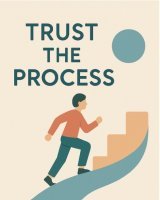 The phrase "trust the process" has become a cliche, the woo-woo mantra of the "self help" industry. Those three little words feel like they ought to mean something useful but hidden behind them are a…
The phrase "trust the process" has become a cliche, the woo-woo mantra of the "self help" industry. Those three little words feel like they ought to mean something useful but hidden behind them are a…The Dopamine Delusion - Why Anticipation Beats Achievement
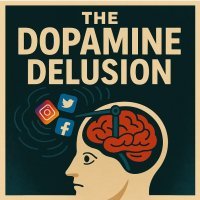 The thrill we feel is not in the having, but in the wanting. The more we have, the more we want. The more things we acquire and the easier things get for us, the more discontent we feel. The more spo…
The thrill we feel is not in the having, but in the wanting. The more we have, the more we want. The more things we acquire and the easier things get for us, the more discontent we feel. The more spo…The Power Of Silence Is Experienced In Your Use Of Language
 Practise the "Beneficial Neurological Delay" for optimal comprehension. The power of silence is experienced in your use of language, specifically: - How you formulate the words you use to think and in…
Practise the "Beneficial Neurological Delay" for optimal comprehension. The power of silence is experienced in your use of language, specifically: - How you formulate the words you use to think and in…



